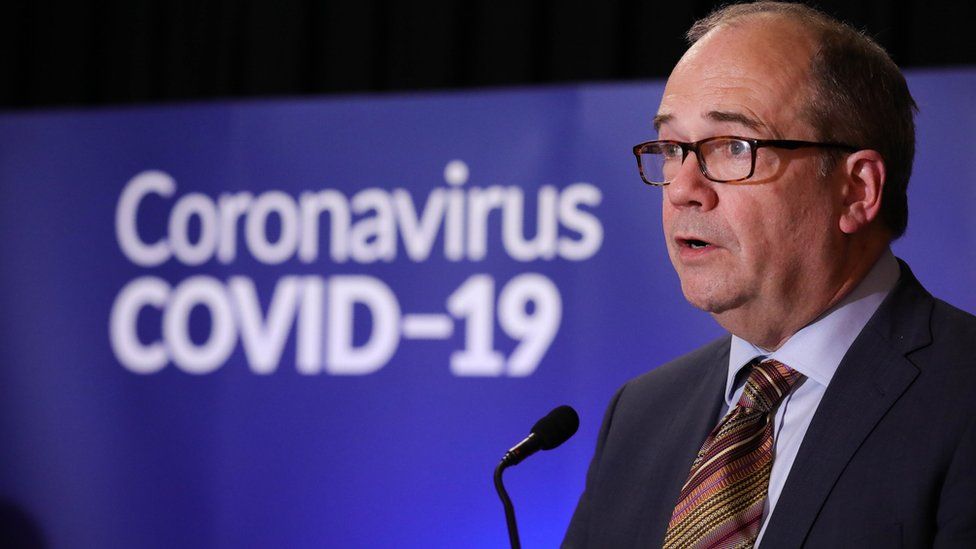
The chief medical officer played a prominent role in NI’s Covid response
By Marie-Louise Connolly
BBC News NI health correspondent
Northern Ireland’s chief medical officer is due to give evidence to the UK Covid-19 inquiry on Monday.
Sir Michael McBride is expected to describe the plans the region had in place to deal with an emergency.
The inquiry is focusing on Northern Ireland this week and its preparedness in the run-up to the pandemic.
Over the coming days it is scheduled to hear from former first and deputy first ministers, Dame Arlene Foster and Michelle O’Neill.
The first phase of the inquiry is examining how prepared the UK was for the pandemic, including within the devolved administrations.
The former permanent secretary at the Department of Health (DoH), Richard Pengelly, is also set to give evidence this week.
Monday’s hearing is likely to hear about Northern Ireland’s Joint Emergency Planning Board (JEPB) which was established in 2010.
The DoH is responsible for leading and co-ordinating the health response when an emergency has been categorised as serious or catastrophic and requires a cross departmental or cross governmental response.
The inquiry is likely to explore to what extent this plan was kept under review and also how well it was tested.
Last week, former Health Minister Robin Swann told the inquiry that a lack of reform and investment in the health service hindered its response to the pandemic.
Brenda Doherty, a leading figure in the Covid-19 Bereaved Families for Justice group, said it was an important week for Northern Ireland at the inquiry.
“Amongst the witnesses to be called, the person I most hope will be able to answer questions fully is the chief medical officer,” she said.
“During his evidence, the former Health Minister Mr [Robin] Swann on several occasions advised the inquiry legal team to direct some of the questions he was unable to answer to Dr McBride.”
Ms Doherty said it was “vital that we have total openness and transparency”.








